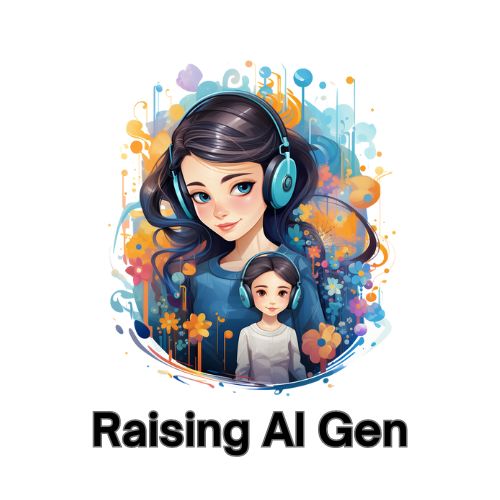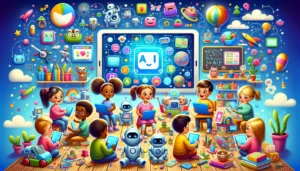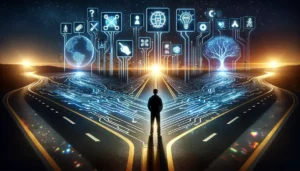In our quest for deeper understanding and connection, the surprising intersection of AI and spiritual intelligence development offers a new frontier. AI tools for developing spiritual intelligence, intuition, and emotional depth are transforming how we explore the realms of our inner selves. These tools are not just about cold, hard data; they open doors to personalized spiritual practices and offer insights that were once beyond reach. In this journey, we embrace AI not as a replacement but as a catalyst, enhancing our self-awareness and empowering our exploration of spirituality.
Key Takeaways:
- Personalization: AI tools offer customized spiritual practices tailored to individual needs.
- Insights: Data-driven insights provide unique perspectives on spiritual and emotional growth.
- Accessibility: AI bridges the gap to diverse wisdom traditions, making them more accessible.
- Balance: While AI is a powerful tool, it complements rather than replaces human intuition and spirituality.
AI tools, such as mindfulness and meditation apps, are reshaping how we approach our spiritual journey. They analyze our responses and guide us through personalized practices, deepening our understanding of ourselves and the world around us. But it’s not just about meditation; AI’s scope in spirituality extends to areas like journaling, dream interpretation, and even exploring different wisdom traditions.
As we embark on this path, it’s essential to approach AI in spirituality with both curiosity and caution. The potential is vast, but so are the ethical considerations and the need to maintain a balance between technology and the human touch. To discover more about AI’s role in mental health and emotional well-being, delve into How is AI Used in Mental Health?.
Unveiling the Inner Landscape: AI Tools for Self-Awareness and Reflection
The journey into self-awareness and emotional depth is profound and unique for each individual. AI tools offer innovative ways to enhance this journey, making the process of self-discovery both engaging and insightful.
Mindfulness and Meditation Apps
AI-powered mindfulness and meditation apps are revolutionizing the way we approach inner peace and awareness. These apps use algorithms to tailor meditation sessions to your specific needs, helping you achieve deeper states of relaxation and mindfulness. They can track your progress and even analyze biofeedback data to provide a truly personalized meditation experience.
Features to look for in AI meditation apps:
- Personalized Guided Meditations: Tailored sessions based on your mood and preferences.
- Progress Tracking: Keeps a log of your meditation journey, showing growth over time.
- Biofeedback Analysis: Uses data like heart rate to customize meditation practices.
To explore this further, consider reading about AI Personalized Learning and its impact on self-development.
Journaling and Reflection
AI doesn’t just stop at meditation. It extends its reach into the realms of journaling and reflection. AI-powered journaling platforms offer insightful prompts, analyze your entries, and provide feedback on your emotional state. This technology helps in uncovering deeper emotional patterns and encourages a more profound self-reflection process.
Benefits of AI in Journaling:
- Emotional Analysis: Understands the emotional tone of your entries.
- Intelligent Prompts: Offers thoughtful questions to guide your journaling.
- Trend Insights: Identifies patterns in your thoughts and feelings over time.
Dream Analysis Tools
Dreams are windows into our subconscious. AI tools specializing in dream analysis use natural language processing to decode the symbolism and themes in your dreams. They provide insights into your subconscious mind, revealing hidden patterns and meanings that can guide your personal growth.
How AI Dream Analysis Works:
- Input Your Dream: Write down your dream in detail.
- AI Analysis: The tool processes the content using natural language understanding.
- Insights Revealed: The AI provides interpretations and insights based on common dream symbols and themes.
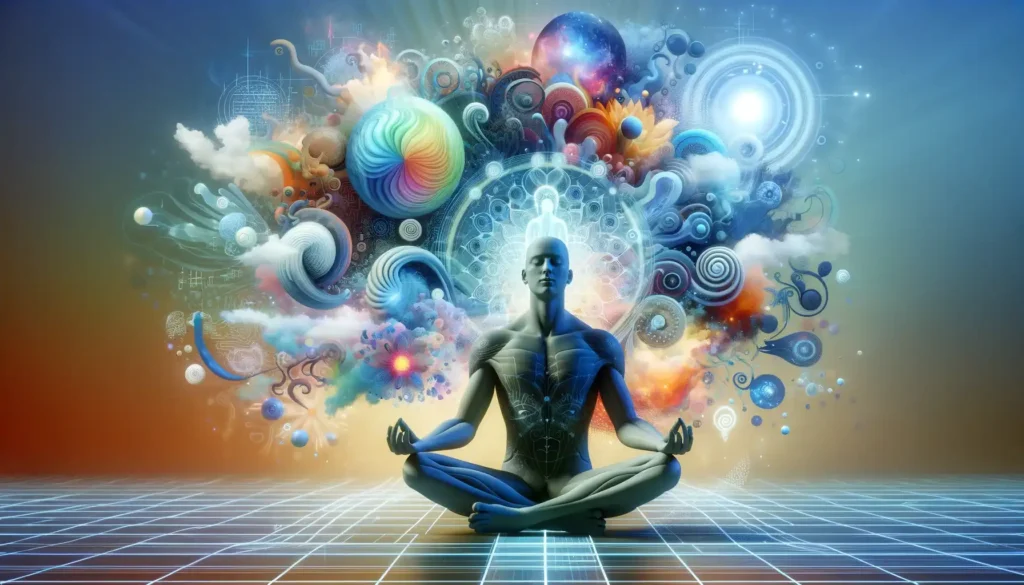
Embracing AI for Inner Growth
As we integrate AI into our spiritual and emotional practices, it’s crucial to remember that these tools are aids, not replacements, for our personal journey. They offer insights and personalized experiences that can greatly enhance our understanding of ourselves, but the true wisdom lies within each of us.
For a deeper dive into AI’s role in mental health, check out Is There an AI for Mental Health? to understand how technology is shaping our approach to emotional wellness.
Whispers of Wisdom: AI Tools for Connecting with Diverse Spiritual Traditions
The realm of spirituality is vast and diverse, encompassing a myriad of beliefs, practices, and traditions. AI is now opening doors to these varied spiritual landscapes, making them more accessible and understandable, especially for those just starting their journey.
Personalized Spiritual Exploration
AI’s ability to sift through vast amounts of information allows it to tailor spiritual content to your personal interests and growth path. This personalized approach helps in exploring spiritual concepts and practices that resonate with you the most.
How AI Enhances Spiritual Exploration:
- Custom Recommendations: Suggests texts and practices based on your interests.
- Learning Pathways: Creates a structured approach to exploring spiritual concepts.
- Diverse Perspectives: Offers insights from various spiritual traditions.
To gain a deeper understanding of how AI is being used in education, including spiritual education, consider exploring AI in Education Books.
Virtual Access to Global Wisdom
One of the most exciting aspects of AI in spirituality is its ability to connect us with teachers and communities across the globe. This virtual access breaks down geographical barriers, enabling engagement with diverse spiritual leaders and practitioners.
Virtual Spiritual Communities Offer:
- Global Teachers: Connect with spiritual mentors from around the world.
- Online Retreats: Participate in virtual spiritual retreats and workshops.
- Community Discussions: Engage in meaningful conversations with a global spiritual community.
Comparative Analysis of Spiritual Traditions
AI can analyze and compare teachings from different spiritual traditions, encouraging a broader understanding and respect for diverse beliefs. This comparative analysis can be enlightening, especially for those seeking a more inclusive view of spirituality.
Benefits of Comparative Spiritual Analysis:
- Broader Understanding: Learn about the similarities and differences among various faiths.
- Respect for Diversity: Gain an appreciation for the richness of different spiritual paths.
- Personal Growth: Discover new perspectives that can enrich your spiritual journey.
A World of Spiritual Wisdom at Your Fingertips
AI tools in spirituality are not just about technology; they are gateways to deeper understanding and connection with the global spiritual heritage. By leveraging AI, we can explore spiritual paths that might have remained hidden or inaccessible, enriching our journey with a tapestry of wisdom from around the world.
Honing Your Inner Compass: AI Tools for Developing Intuition and Emotional Depth
In the journey of personal growth, developing intuition and emotional depth are key milestones. AI, with its advanced analytical capabilities, offers unique tools to assist in this process, making it accessible and insightful for beginners in the realm of AI.
Enhancing Emotional Intelligence
AI has the remarkable ability to assist in recognizing and understanding emotions, a fundamental aspect of developing emotional intelligence. This technological support comes in various forms, enhancing our ability to interpret and respond to our emotions more effectively.
AI Tools for Emotional Analysis:
- Facial Recognition: AI can interpret emotional cues from facial expressions.
- Voice Analysis: Analyzes tone and inflections to identify emotional states.
- Biofeedback Data: Uses physiological data to provide insights into emotional responses.
Intuitive Decision-Making Support
AI’s power lies in its ability to analyze past decisions and outcomes, offering insights that can guide future choices. While intuition is inherently human, AI can augment this ability by providing a data-backed perspective.
How AI Supports Intuitive Decisions:
- Pattern Recognition: AI identifies patterns in past decisions to inform future choices.
- Predictive Analysis: Uses historical data to predict potential outcomes.
- Personalized Suggestions: Offers recommendations based on individual decision-making styles.
Fostering Creativity and Self-Discovery
Creativity is closely linked to intuition and emotional depth. AI tools can act as muses, sparking inspiration and facilitating creative expression. They offer a platform for experimentation and self-discovery, encouraging users to explore and express their inner selves in new ways.
AI in Creative Expression:
- Creative Prompts: Generates prompts for writing, art, and other creative activities.
- Feedback and Analysis: Provides constructive feedback on creative works.
- Collaborative Tools: AI can collaborate in the creative process, offering unique perspectives.

Embracing AI as a Partner in Personal Growth
Utilizing AI for developing intuition and emotional intelligence is a journey of partnership. AI tools offer support, insights, and inspiration, but the core of this growth remains a deeply personal and human experience.
To explore more about AI’s role in enhancing learning and personal development, delve into AI Speech Therapy and discover how AI is used to improve communication skills, an essential aspect of emotional intelligence.
Technology and Transcendence: Embracing AI as a Guide on Your Spiritual Journey
In the fascinating intersection of technology and spirituality, AI emerges as a guide, offering new perspectives and tools for those embarking on their spiritual journey. This section explores how to integrate AI into our spiritual practices responsibly and mindfully, ensuring that it serves as an aid rather than a distraction.
The Role of AI in Spiritual Practices
AI’s role in spirituality is multifaceted. It can provide personalized spiritual content, facilitate meditation practices, and even offer insights into complex philosophical questions. However, the key is to use AI as a tool that complements, not replaces, personal spiritual exploration.
AI as a Spiritual Facilitator:
- Content Curation: AI can curate spiritual content tailored to individual preferences.
- Meditation Guidance: Offers guided meditation sessions based on personal needs and responses.
- Philosophical Insights: AI can pose and help explore deep philosophical and spiritual questions.
Balancing AI and Human Elements in Spirituality
While AI brings efficiency and personalization, the human elements of empathy, intuition, and personal experience remain irreplaceable in spirituality. Balancing these aspects is crucial for a holistic spiritual experience.
Maintaining the Balance:
- Human Touch: Prioritize real-world spiritual experiences and human connections.
- AI as a Supplement: Use AI as a supplementary tool to enhance, not replace, personal spiritual practices.
- Ethical Considerations: Remain aware of the ethical implications of using AI in spirituality.
Critical Thinking and Discernment
Incorporating AI into spiritual practices requires critical thinking and discernment. It’s essential to question and understand the source of AI-generated insights and ensure they align with personal values and beliefs.
Principles of Discernment:
- Source Evaluation: Understand the origin of AI-generated content and its alignment with personal beliefs.
- Questioning AI Insights: Critically analyze AI insights rather than accepting them at face value.
- Personal Values: Ensure AI tools and content align with personal spiritual values and goals.
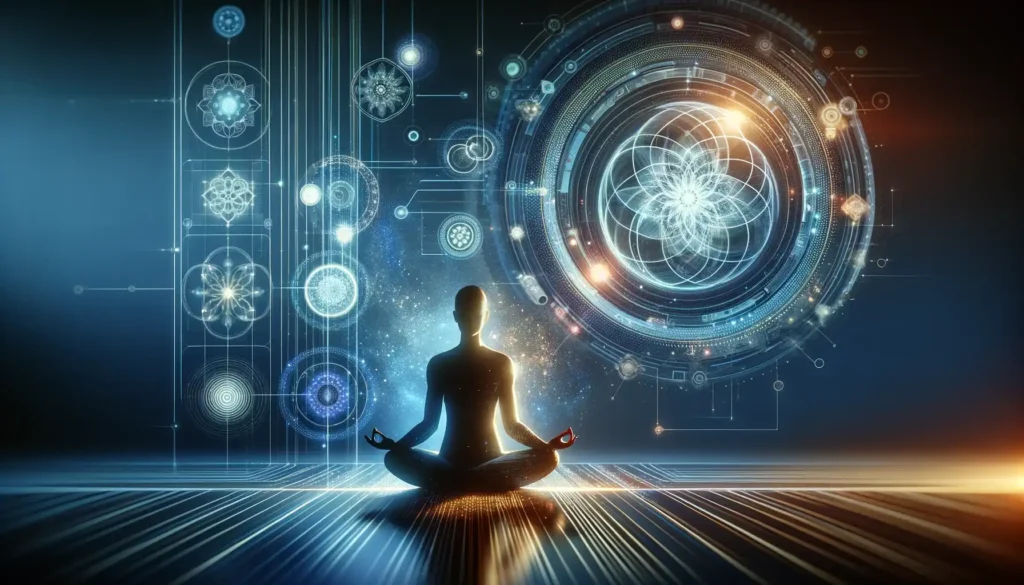
The Continuous Journey of Growth with AI
Recognizing that spiritual exploration is a continuous journey, AI can be a valuable tool for learning, self-discovery, and transformation. It offers a unique opportunity to explore spirituality with a blend of ancient wisdom and modern technology.
Frequently Asked Questions
| Question | Answer |
|---|---|
| Can artificial intelligence be emotionally intelligent? | While AI can analyze and respond to human emotions, its ’emotional intelligence’ is based on data and algorithms, not genuine emotions. AI systems can recognize and simulate emotional responses but do not experience emotions themselves. |
| Can you make AI have emotions? | AI cannot have emotions in the human sense. It can simulate emotional responses based on programming and data analysis but does not possess feelings or consciousness. |
| Can AI simulate intuition? | AI can simulate intuition by analyzing vast amounts of data and identifying patterns that may not be immediately obvious to humans. However, this is based on statistical analysis and machine learning, not true intuition. |
| How can I improve my spiritual and emotional intelligence? | Spiritual and emotional intelligence can be improved through practices like mindfulness, meditation, self-reflection, and engaging in meaningful conversations. AI tools can assist in these practices by providing personalized guidance and insights. |
| How does AI impact traditional spiritual practices? | AI can offer new ways to engage with spiritual practices, such as virtual meditation guides or personalized spiritual content. However, it’s essential to balance technology with traditional, human-centered spiritual experiences. |
| Can AI support interfaith understanding and exploration? | Yes, AI can analyze and present teachings from various faiths, offering comparative insights and facilitating interfaith understanding. It can be a tool for those seeking to explore and learn about different spiritual traditions. |
Further Reading
| Title | Link |
|---|---|
| AI Tools for Exploring Alternative Life Paths | Read More |
| How is AI Used in Mental Health | Read More |
| Is There an AI for Mental Health? | Read More |
| AI in Education Books | Read More |
| AI Personalized Learning | Read More |
| AI Speech Therapy | Read More |
| AI for Educators | Read More |
| AI Tools for Teachers | Read More |
| AI for Language Learning | Read More |
